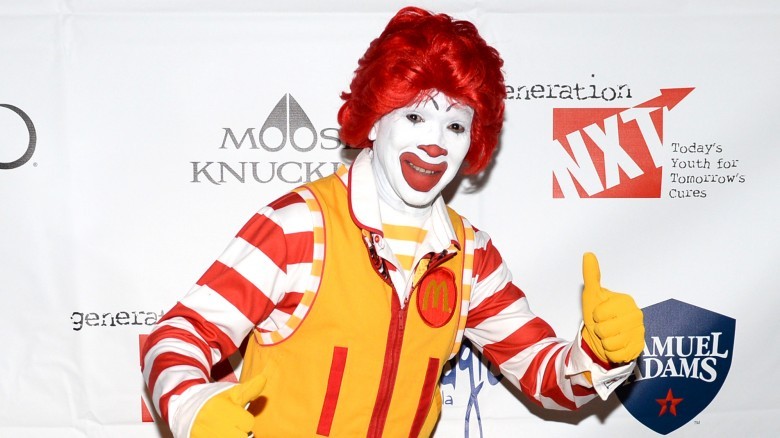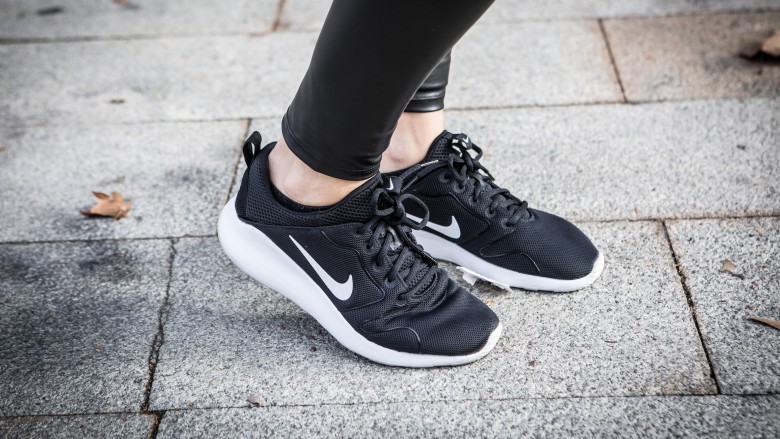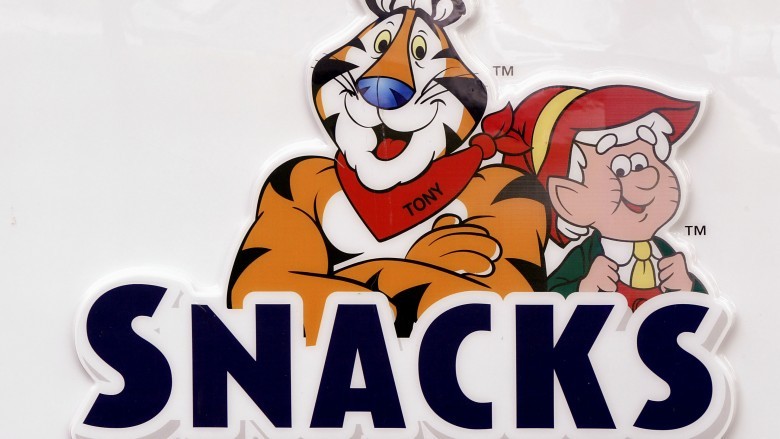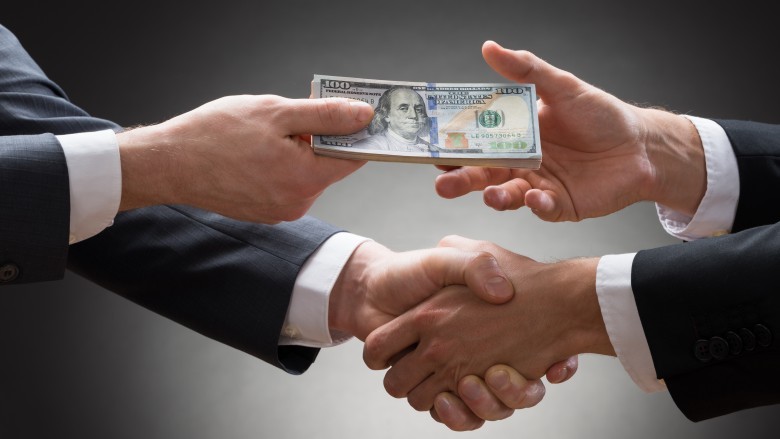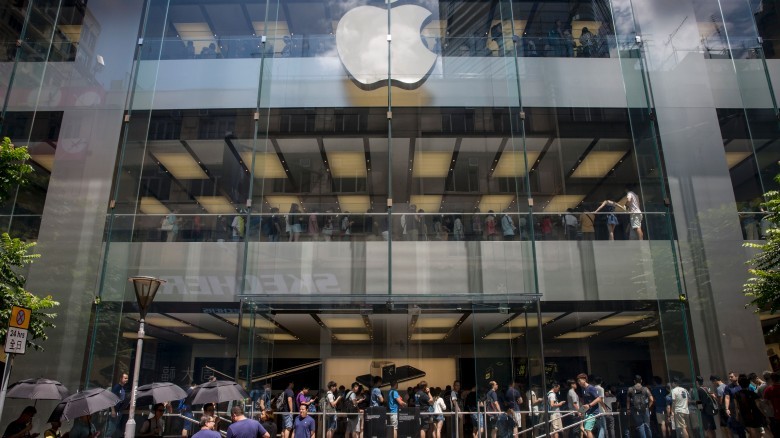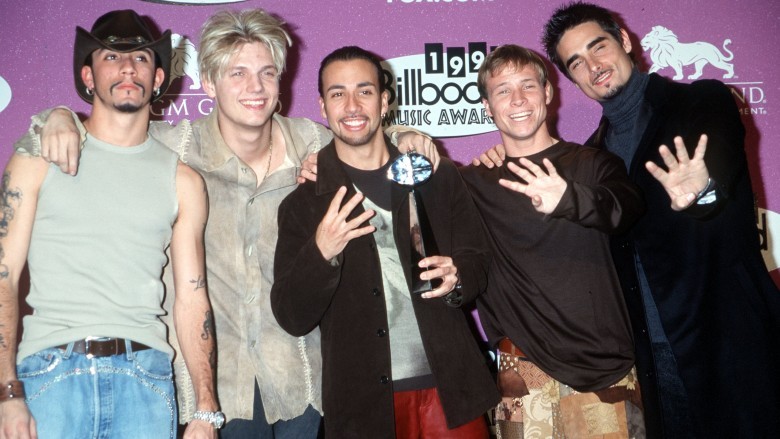Marketing Tricks That Fool You Every Time
No matter how impervious to commercials you think you are, advertisers have a wide array of tricks that make you fall for their schemes. So, take a note and beware of these marketing tricks before you get a quick Starbucks or go to Taco Bell for their latest weird creation.
They make you feel like a part of something
"When you're here, you're family." That's not just Olive Garden's tagline, but it's a marketing guideline that's constantly used to manipulate you. In The SAGE Handbook of Marketing, the authors posit that our evolution to use markers as self and group identification has led us to use commercials brands as ways to identify our social groups. Giving ourselves a strong association with a brand immediately lets us be a part of that exclusive group or family. Who doesn't want to feel like they're part of a family? Even if that family only sells mediocre pasta and shockingly good breadsticks.
If you think back to high school, as unpleasant as that may be, you could probably identify each clique by where they shopped for clothes. The cool kids shopped at the Gap, the poorer cool kids shopped at Old Navy, and the wannabe punks kept Hot Topic alive. Brands become the symbols of where we belong in society, which puts far too much importance on a store that exclusively sells pleather pants and ironic T-shirts.
They get you to advertise for them
Back in the old days, companies could only advertise on TV, radio, movies, in newspapers and magazines, and on gigantic billboards. Those poor marketers had to pay for all that advertisement—it just wasn't fair. Luckily, we have the Internet, and advertisers can get you to do their dirty work for free.
An article in Business Insider recommends that marketers search online for people who have said nice things about their products and ask them to write a review. That sounds pretty harmless, except every good review is the best possible advertising a business can have, and they're getting it from you for free. If a brand runs a commercial with fake testimonials of how great the product is, you won't care. You know it's all fake. But if you see your friends and peers giving them high ratings, you're certainly more likely to give the product a try. So, unless you're getting a sweet residual check for every Yelp review you penned, companies are working you for free.
There's even a theory that Starbucks employees spell your name wrong on purpose in the store, knowing that people will put that mermaid logo all over social media. Though that's probably a stretch, we've definitely seen more press about Starbucks cups than their coffee in recent years.
They repeat things until we think they're true
Not all advertising works by hitting you over the head with the greatness of their product. Often, marketers use the tool of repetition to slowly cement their brand in your mind. Anurag Mehra's Advertising Management says "Registering a claim in our minds (e.g. 'Taste the difference' or 'Good to the last drop') does not necessarily mean we believe it. However, it does make us aware that there are claimed differences between brands. This is a proposition ... that, when everything else is equal, may tip the balance of brand selection, even if only to prompt us to find out if it is true."
So, you may not run out and buy a can of Maxwell House just because you heard it was good through all of its drops, but after a while, you do associate it with the idea of being good. If it's up against another brand you have no association with, you'll be more likely to pick up Maxwell House. You know, because it's not just good for the first couple of drops, but all the drops are equally good.
Make the inhuman human
Ads don't use animal mascots for no reason. If you really think about it, it makes no sense that a tiger would enjoy cereal, let alone tell the world of its greatness. But Tony the Tiger has stood the advertising test of time because we respond so well to anthropomorphism. Anthropomorphism is the idea of giving human qualities to something inhuman, i.e. the basis of every Pixar film. University of Chicago professor Robert Epley studied the psychological reasoning behind anthropomorphism and found that we tend to do it for three reasons. One, to make a connection with something. Two, to have a sense of control over something we have no control over and assign thoughts to thoughtless things. And three, we do it naturally. We're humans, so we tend to view all things through that human filter.
Why does this matter? Well, you'll kill at Scrabble now with your new 16 letter word. Also, advertisers use animals or objects as spokespeople because we know we'll assign them personalities and make a connection with the brand. Oddly, a talking cartoon tiger is more likely to be seen as trustworthy than an actual human. So, if you ever think about how much fun those Budweiser frogs are having now, anthropomorphism hooked you in deep.
They take a common phrase and associate with their brand
This trick is really devious. As companies find a slogan for their brand, they've got to pick something simple and catchy, so it's easy to repeat and slowly sinks into our consciousness. But if they also pick an already common phrase, that process is going to happen faster and be even more powerful.
Unless you're cold and heartless, you probably said "I'm loving it" or something very close to that long before McDonald's turned it into their slogan. Now, you can't hear the phrase "I'm loving it" without hearing that fricking "bah bah bah bah bah" jingle coming after it. Honestly, if you hear a phrase that's just similar to "I'm loving it," that jingle will come to mind. McDonald's is getting free, nearly constant advertising because they've attached themselves to a common phrase.
Same goes for "Just do it" or "Can you hear me now?" That one's super aggravating because you feel like a billboard when you're asking an occasionally necessary question. Also, that's why Carl's Jr.'s "If it doesn't get all over the place, it doesn't belong in your face" catchphrase didn't really catch on. It's pretty tough to bring that up in a conversation about hamburgers, let alone any other human chat.
They start young
Kids are incredibly susceptible to advertising. If something is bright, loud and/or covered in sugar, a kid will feel like they MUST get it now and they're not afraid to pester their parents about it. Think back: marketers convinced us that Sunny Delight was a high step above real orange juice and that Surge was a good idea. We were so naive. Brands know this and take advantage of sowing the seeds of company loyalty early before our brains fully form.
This doesn't just apply to kids' products and toys. Advertisers look to plant the idea of their more adult-oriented brand in an impressionable child's mind. The book Brandwashed cites a study where kids were fed five identical meals. One was wrapped in McDonald's wrappers, one in generic wrappers. As you might guess, they loved the McDonald's wrapped food far more than the generic. Of course! They've been hearing how much people are loving it since they were in the womb. The book also quotes best-selling author and documentarian David Rushkoff, who says, "A nine-year-old child who can recognize the Budweiser frogs and recite their slogan (Bud-weis-er) is more likely to drink beer than one who can only remember Tony the Tiger yelling 'They're great!'" Cool. So, every time some douche-hole quoted "Whassup!" he was making a kid want to drink beer.
Going, going, gone
Not every marketing trick is based on the human evolution of the psyche. Sometimes it's just a plain old lie that does it. There's a reason why ads tend to say "limited quantities" or "sale ends soon." If you think there's ton of their product lying around, you don't have a strong incentive to buy immediately, and there's a slight connotation that other people don't really want it. But when the product is flying off the shelves, we have to get one before we miss out.
The Journal of Personality and Social Psychology performed a study where 200 random people had to rate the attractiveness of a plate of cookies. One group had cookies that were limited, the other had lots of cookies. Also, they tried groups where the cookies started in low supply and filled up and vice versa. They found that overall, people rated the scarce cookies as more attractive and cookies that started abundant but grew scarce were the most attractive of all. When an ad says "supplies are limited," it's probably a lie. But it's a lie that will always make you more likely to buy.
Give and take
Now, a company advertising a sale or any kind of "free giveaway with purchase" kind of deal is obviously trying to lure in customers. But they're doing it not only because people like free and cheap stuff. As humans, when people give us something, most of the time, we want to give back, unless you're pre-ghost visit Ebeneezer Scrooge. So, if a company gives us a great deal or a free present, we feel like they deserve more of our money in the form of future sales. We want to give back to the company that's been so good to us.
Robert Cialdini discussed the idea of reciprocity in business with NPR. It works in a variety of monetary transactions, even tipping. He found that when people got a plain check with nothing extra, they tipped however much they wanted based on service alone. Cialdini added, "But if there's a mint on the tray, tips go up 3.3 percent." A second mint, and the tip jumped 20 percent. Yep: one stupid Andes mint, a dozen of which probably cost a dollar, will make us feel like we need to give extra back. So, if we increase our generosity over a crappy garbage mint, imagine how much money and loyalty we give whenever we feel that a brand has done us a favor.
Side note: give your coworkers little candies every once in a while so they'll feel obligated to give you favors down the road.
The deal that isn't a deal
This is a trick we see all the time, but it's so hard to resist. Whenever you see a tag that has $1,000 with a red slash through it and the new price marked to $200, you feel the need to buy it. Sure, you only wanted to spend $100, but hey, how can you turn down a $800 savings?
This idea is called anchor pricing. We naturally place a "reasonable price" to common objects. Now, if we're talking about milk, we see a pretty moderate range of prices for it all the time and there's not much advertisers could do into tricking us into thinking it's worth more. But, for new products, which is pretty much every piece of technology, marketers can set an arbitrarily high anchor price then trick us into thinking we're getting a "deal" when we're paying the real price.
For example, look at Apple. Neuroscience Marketing uses iPhones as an example because when they were first released, they cost about $599. A few months later the price dropped by $200, and when the iPhone 3G came out, it was only $199. The $199 version sold a million phones in three days. Even though the idea of paying $200 for a phone would have sounded completely insane the year before, now, it's an amazing deal. The idea of marketers setting "reasonable prices" for items really screws us every time.
Hey remember the '90s?
Nostalgia is running rampant. VH1 had to finally discontinue Best Week Ever because each week became a labyrinthine array of throwbacks to throwbacks to throwbacks. We love seeing things that remind us of when we were younger, and advertisers take full advantage.
In the book Nostalgia: A Psychological Resource, studies found that people had lasting connections to the stars and products from when they were in their late teens or twenties. The book cites a few studies that found the use of nostalgia in advertising made customers pay more attention to the ad and feel more favorably to the product.
It doesn't make any logical sense because the commercials rarely appeal to your nostalgia for the product itself from the old days. They just use people or things from your pop culture past to sell something unrelated. So advertisers get a reaction like "Oh my God, I do remember Urkel! I was so young then! Now, I must buy the acne cream he was selling!" So, if you see an ad bringing back the Backstreet Boys, see if you suddenly have a craving for the new snack they were advertising. You probably will. Because the marketers get you every time.
